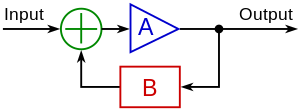
- Image via Wikipedia
this is a reflection on strategies of leadership under conditions of complexity
Michelle: as your excellent posting on CAS notes, at certain degrees of complexity we have to adopt simpler and shorter term behaviors, and act with care and humility, measuring results and applying the feedback more rapidly in order to evolve our practice to conform to the new demands of a changing environment.
I think your analogy of a football playbook to be right on target. They have the general principles of how they want to play, but they require this tightly organized group of teammates to adapt in split seconds to the opponent and to the players around them in order to be successful.
I’m reminded of Vince Lombardi‘s strategy of running to daylight in which simple zone blocking that was very physical allowed the line to gain a space advantage and then required the running back to simply find the hole and run through it. The flexibility built into the strategy was perfect for a highly complex and adaptive learning environment.
By rendering the strategy into a simple heuristic that was easy to communicate and understand, he was able to synchronize and simplify the complex situation in to manageable proportions. This is a different strategy than trying to decompose the football problem into smaller subsets, which is still by its nature a control strategy rather than an adaptive strategy.
Related articles by Zemanta
- Chaos And Systems Theory (slideshare.net)
- A Concise Approach for the Synthesis of Core Fragment C7-C15 of (+)-Migrastatin Using Desymmetrization Strategy (kmistry.info)
- Social Media Strategy (slideshare.net)
- Talking about The Changing Landscape of eBusiness TODAY at Insurance Post’s eBusiness Strategy event (hortal.com)
- What Good Cop Bad Cop Can Teach You About Social Media Strategy (socialmediatoday.com)
- Surprise! Poll Shows Different Strategies Needed to Win LGBT Equality (bilerico.com)
- The New Strategy (slideshare.net)
- A reflection on leading and managing a complex Participatory Action Research curriculum project (kansasreflections.wordpress.com)
- culture and climate (kansasreflections.wordpress.com)
- The power of family values and hard work (kansasreflections.wordpress.com)
- A reflection on charismatic leadership (kansasreflections.wordpress.com)
- education, leadership, biodiversity and the limits of reason (kansasreflections.wordpress.com)
- A reflection on Hunt’s “Leadership: A new synthesis” (1996) (kansasreflections.wordpress.com)
- Reflecting on self-directed leadership in a military college environment (an action research approach) (kansasreflections.wordpress.com)

![Reblog this post [with Zemanta]](http://img.zemanta.com/reblog_e.png?x-id=ce6ffe24-05d1-46e5-9743-0b1ad1719d4a)